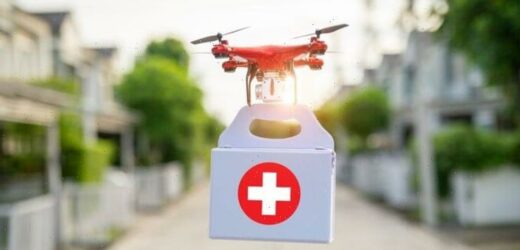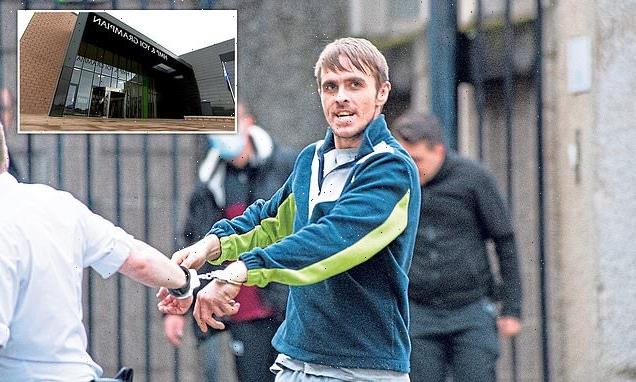Karol Sikora discusses healthcare investment opportunities
We use your sign-up to provide content in ways you’ve consented to and to improve our understanding of you. This may include adverts from us and 3rd parties based on our understanding. You can unsubscribe at any time. More info
The Future Flight Challenge is a £300million UK Research & Innovation (UKRI) initiative jointly funded by Government and industry to ramp up Britain’s aviation industry. Set up by the Department for Business, Energy and Industrial Strategy to “drive industry change in important areas”, it involves investing in medical drone projects like MediDrone.
The spectacular drones are set to follow pre-planned paths between medical centres, such as hospitals and pharmacies.
This will allow them to act as ultra-fast shuttles for medical packages.
Future Flight Challenge Director Gary Cutts told Express.co.uk: “Our projects have already started helping the NHS by using drones to deliver PPE and Covid-19 testing kits to remote communities in the Scottish highlands and to the Isles of Scilly.
“We have projects looking at flying chemotherapy drugs, blood, medicines, even defibrillators.
“These technologies mean we can now get urgent medicines to patients in remote communities in hours, rather than days. “


Drones have now been recognised by the healthcare community for the stunning advances they could bring to the industry.
Dr. Jeremy Tucker, vice president patient safety and regional medical director at MEP Health, said: “Drones are going to decrease the reliance on human beings that provide care and decrease the cost of assisting people.
“Being able to cross long distances at faster speeds to deliver blood products and lab samples also is a huge benefit.
“Now transporting blood products between hospitals, for example, involves vehicles on the ground that are prone to accidents and delays.
“Drones can help decrease those incidents.”
As part of the Future Flight Vision & Roadmap, the Government is providing £125million of public funding to support the scheme.

The investment is matched by £175million from the industry.
While part of the project involves ramping up the speed of medical deliveries, it is all part of a broader revolution of aviation in the UK.
Mr Cutts said that support has also been provided by the Civil Aviation Authority to speed up regulation developments in a safe manner.
He added that the Government has also provided funding for other related research areas like the Aerospace Technology Institute.
The plan also includes creating air taxis that could revolutionise the morning commute.
DON’T MISS
Saudi Arabia hands Putin oil lifeline after major blow [INSIGHT]
Putin outsmarted as UK refuses to sell Galileo alternative [REPORT]
Warning Russia could bring world to standstill by wiping out GPS [REVEAL]


By introducing advanced air mobility vehicles capable of vertical take-offs and landings, UKRI hopes that the new technologies could provide short journeys through congested areas for up to 10 people.
As well as medicines arriving in just hours, groceries could also whizz to your door in under 15 minutes thanks to these exciting new drones.
Mr Cutts said: “In some cities, grocery companies already promise to have deliveries to your door within 15 minutes.
“Flying deliveries to homes would expand the delivery radius available for these companies, as they can fly faster than a courier could travel on the road.”
“We see postal services, especially to remote areas, as being another important beneficiary of faster and more regular deliveries.”
Source: Read Full Article


